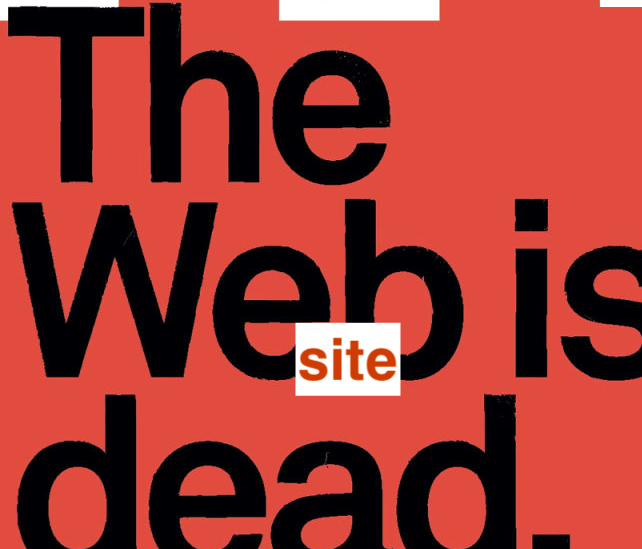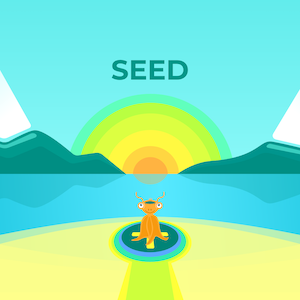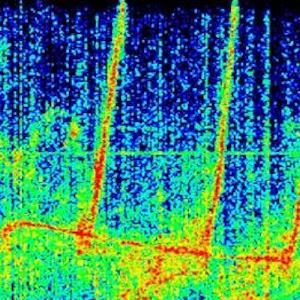In a country where about 60,000 babies are born every day, the term 'reproduce' is a deal altogether massive. Over the years and decades, however you see it, the numbers add up to something tremendous or even ludicrous. Its impossible to gauge how many of these new-born Indians would eventually become musicians, singers, producers, DJs or even form bands, as the embodiment of new Indian artists. Inside a nation which is always oscillating between hope and tragedy, there are thousands of such new artists, as talented and keen to find 'agency and equitable space' - to be able to manifest their talent, without fear, outside market pressures and institutional prejudice. The story of REProduce Artists is entwined within the aforesaid conundrum, creating 'equity and opportunity' for musicians, especially those who are breaking the rules, stepping outside the mainstream mud.
Since it's formation 8 years ago, REProduce Artists has showcased about 400 artists from across India. Blurring genres and aesthetics, to create independent and often transient spaces for artists. Rana Ghose, founder and curator of Reproduce Artists has been hacking away, almost like a mad scientist, leading a diverse bunch of emerging and unknown artists from India. Born in Halifax Canada, yet with a clear affinity for India on many levels, Rana Ghose has come a long way from his 'safe' academic background and the dilema confronting a system, which he says is "asymmetrically corrupt" - into the world of music management, PR, film-making, organising concerts and vociferously generating content and new ideas. Rana Ghose looks back at the experience so far, the changes and new pathways.
Lets go back to 2010. The formation of REProduce and what changed there on?
Honestly, I think I changed. After I finished my PhD in 2010, I dived into this strange, fascinating world of the "entertainment business", not really sure what the outcome would be. I didn't know what would happen if I didn't pursue an academic career, one based on my training as an international trade specialist and economist. Entering either of those professional fields - which I did for ten years as a highly paid consultant - was fraught with deep issues. An academic career seemed terribly indulgent and of marginal value to society compared to what I felt I could offer if I pursued something more honest. The nature of international trade (and it's regulations) reveals complete hegemony - by lobby groups and more developed economies, rendering any notion of "equity" impossible by construction. I realised that if I continued along that career path, I would have to delude myself and accept these facts. Devoting my time towards something that I knew was systematically corrupt in exchange for a semblance of financial security and material comfort seemed unwise. I just couldn't accept it. I like sleeping peacefully... As far as REProduce... Well, I mean it all started with you really, and our meeting Charanjit Singh. That changed everything!
Us meeting Charanjit Singh, was clearly the catalyst... For me, suddenly being thrust into a world of PR agencies, leaping into 10,000 capacity festival bookings, work visas, flights, the music "business" dirtbags! Also observing (and addressing) bad habits, the rush of producing a fantastic event... all of it! I just fell in love with it. There is nothing like producing an event that will be unlike anything anyone has experienced before and knowing that those people there are feeling it. That they will remember it. It means a lot to me. But in terms of an event, the first big, sudden, change was when Charanjit passed away. He was the only artist I really "managed" - he trusted me completely, and I him. More about Charanjit Singh and his amazing legacy here!
And post Charanjit?
After his passing, and after really focusing on booking international talent internationally between 2013 and 2015 given these new worlds that opened up because of my managing him, and of course you and Ashhar as far as China, I just felt it was time to focus on India. To do the kind of events that I wanted to go to. To showcase music that meant something to me. Watch this short narrative to understand better?
In retrospect, this is really where things changed - I realised that I was drawn to talent that saw the world like Charanjit did; the kind of people who were willing to take risks, who knew they had something to say, and who didn't care about anything else. That's a very powerful outlook, and one that really inspired me. And if they didn't seem to possess that conviction, then I had a role - in whatever capacity I possessed to make that happen, and if I felt people should hear and experience the work, then I'd do it, in whatever little way I could...
Maybe in doing so, people were drawn to it - maybe there was and is a sense of community, where someone who is creative but maybe doesn't fit into the peg of where music gets showcased here in India feels like whatever we've built is the right place. And in doing so, maybe they inspire others. I'm not sure, I've had many conversations about REProduce Listening Room with many people - patrons, artists, audiences, observers - and I've heard this assessment narrated to me. But to answer your question more specially, the only thing that really changed when we were actively showcasing talent in a public setting was that a wider and richer pool of artistry that I felt drawn to emerged. I don't know if that had anything to do with us. I suspect the music was always there, and nothing changed. All I can really say is we were fortunate to have people send us their work, maybe because they felt we'd get it. We certainly never had any particular interest in genres. We were just drawn to risk takers. It didn't really matter what form of music or expression was made manifest.
What changed over time? In terms of curation and it's relation to existing conditions?
I don't know... It always changes. Post the pandemic, we've obviously had to pivot away from live engagements, but that, in many ways, has been a good thing. I of course miss producing events, but no part of me can rationally suggest that it's anywhere near responsible to produce an event in the middle of a pandemic. Of course I was tempted, but, I just couldn't do it. Even though I was asked to many times. So, I decided to pursue something I always wanted to do, which was to move these showcases online. But similar to how I felt about the landscape of live music in India in 2016 - when we started to produce events here, I wanted to do it in a way that I'd be drawn to. And that meant live-streaming, but in a different way. I just threw myself into learning about the IP backend of transcoding live video, built a basic RTSP server, and executed on a very basic question: since smartphones contain IP enabled video cameras, why couldn't I ingest high quality live footage from phones anywhere on earth and produce them as multi camera live streams?
To your question, this pointed to a new of viewing my own curation. Much in the same way that all my event production was based on a nation of a "container" - where I would not suggest any kind of expression, but rather trust the creative signal of an artist as I read it and only provide a logistical series of directives to ensure efficient execution - I approached live-streaming in the same way. After doing 27 episodes of a sort of trial season of sort of talk show container over April and May 2020, I was left with two realisations...
First, live video is unlike any other form of the moving image as it presents real vulnerability, the kind of vulnerability premised on viewers having no idea what might happen next, but aware that it is happening on the same gradient of time that we all adhere to. That's an odd environment, but a fascinating one. I became convinced that the gravity of that vulnerability is just a mirror of our own mortality, that we don't know what is going to happen next, and that basic fact connects us all.
Second, the medium - if the container is set up for it - possesses this utterly unique capacity to allow a producer to outsource directorial agency to a third party, in real time. The obvious proxy of this is something like OnlyFans, where viewers will pay a performer to "do" certain things, but the incentive structure remains.
How do you explore such uncharted spaces, in context to India and Indian artists?
To fully explore this, I began to work with a wider variety of artists - not just musicians, but performance artists, scripted characters, people who use their bodies to express themselves. I would pair people with strategic blinds - for example, a musician live scoring a performance artist in real time, but with the performance artist having no idea what the musician was doing, and with the musician having no prior indication of who the performer was, or what he or she was planning to do. Check this video to know more!
Or, I would build "game show" environments in a sort of tilted "talk show" container, where someone would be given a task to do, constrained by time, and would be rewarded for how many times he or she would follow the directives of someone in a chat. Sometimes there would be brands involved, sometimes not - I was just guided by those two realisations I had post the first "season", and I wanted to explore them. I wanted to see how "advertising" could work in this container, and what "brand equity" really means in this stance space. In doing so, I ended up working with a far richer diversity of artistic expression. I don't think I can really go back to working with musicians alone.
What is considered edgy by some, seems to be the worldview of others. Over the years, REProduce seems to have an affinity for such extremes. Comment?
The best work always comes from people who probably would lose their minds if they didn't make something. I'm drawn to that. Maybe I relate to it. Maybe it suits my worldview. It's an instinct. I don't exactly know what the "edge" is - if it's someone playing classical piano, someone who wants to reach a wide audience on their own terms while prioritising monetising on that vision, someone who possesses almost unfathomable talent but remains unknown, someone who is clinical in the precision of executing their vision with no regards for anyone else, someone who feels compelled to tell a story because a sense of identity drives it. Maybe that "edge" speaks to me in how I estimate their own decisions - to do any or all of these things. Because it's binary - theres no grey area in life, the billions of decisions we make every waking moment are all binary. From a distance the black and white may seem grey, but they aren't of course. If that characterises an edge, then yes, thats what I can relate to, and that's what I likely have an affinity for. Because it's immediate, real, and reflective of something that connects us all.
Post pandemic, the music industry and landscape is in shambles. What do you foresee in the coming months and years? The agenda?
I don't think things will ever be the same, obviously. But I can't estimate the future... There are too many variables; viruses live here on earth, they adapt and mutate as all living things do, and like anything that is fortunate enough to exist here, the agenda is survival against all odds. So who knows. All I can really say is that there is a tremendous sense of anger towards this current administration in India given certain assessments around a variety of recent crises and stress points, and that anger spills over.
So what's cooking inside the Reproduce lab as of now?
I've tried a bunch of new things over the 2020 pandemic. If I stop and think about why, it's all premised on observing and internalising the remarkably creative people that I've been fortunate enough to work with. There is a lot to be excited about, a lot of inspiration around me. I have a lot to say about what I plan to do next, but not here - I'm more compelled to allow the work to speak for itself as it unfolds. What I can say is that the premise will remain: I want to showcase artistry that means something to me, experiences that I feel needs to be seen and internalised by more people. And maybe part of that also means to reveal myself more. It's not something I usually do, but, there is value in the exercise. Of navigating my own character. It helps me to relate to that vulnerability that the creative people I know face everyday as they develop their craft, and it allows me to observe these often vague lines between fact and fiction in a direct, empirical way as they change, morph, and gel. I just want to tell stories, that's it really, and not have to worry about whether the stories are palatable. It just needs to feel right...
I've tried a bunch of new things over the 2020 pandemic. If I stop and think about why, it's all premised on observing and internalising the remarkably creative people that I've been fortunate enough to work with. There is a lot to be excited about, a lot of inspiration around me. I have a lot to say about what I plan to do next, but not here - I'm more compelled to allow the work to speak for itself as it unfolds. What I can say is that the premise will remain: I want to showcase artistry that means something to me, experiences that I feel needs to be seen and internalised by more people. And maybe part of that also means to reveal myself more. It's not something I usually do, but, there is value in the exercise. Of navigating my own character. It helps me to relate to that vulnerability that the creative people I know face everyday as they develop their craft, and it allows me to observe these often vague lines between fact and fiction in a direct, empirical way as they change, morph, and gel. I just want to tell stories, that's it really, and not have to worry about whether the stories are palatable. It just needs to feel right...




























0 -